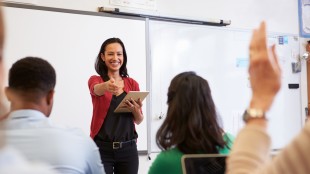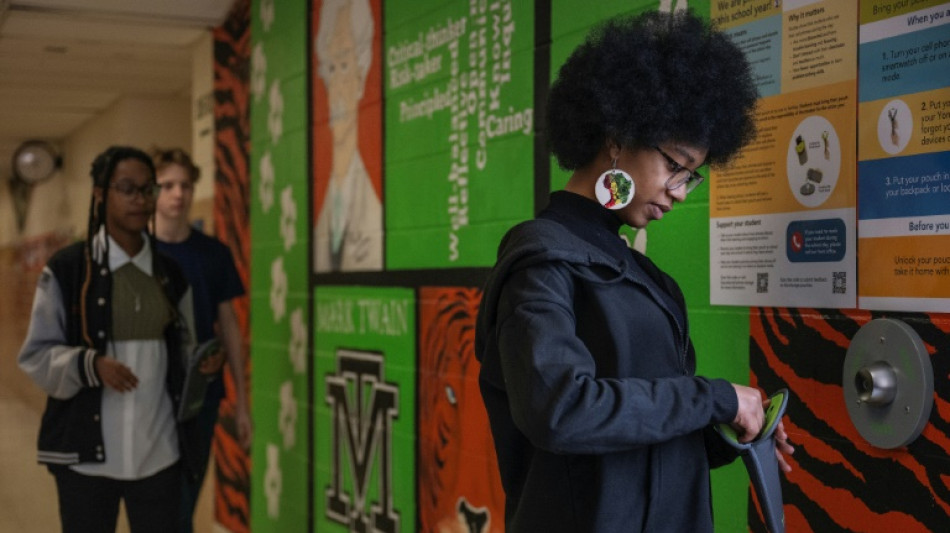
-
 How AFP has used data analysis to cover the Ukraine war
How AFP has used data analysis to cover the Ukraine war
-
Paris says US envoy pledges not to 'interfere' in France affairs
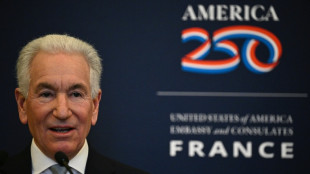
-
 Iran says students must respect 'red lines' after protests
Iran says students must respect 'red lines' after protests
-
Italian biathlete Giacomel has heart surgery after Olympic withdrawal

-
 Gazans salvage ancient books in mosque library damaged by war
Gazans salvage ancient books in mosque library damaged by war
-
Farhan scores 63 as England restrict Pakistan to 164-9

-
 Stocks bounce as traders assess AI fallout, tariffs
Stocks bounce as traders assess AI fallout, tariffs
-
Brazil court tries politicians over hit on Black councilwoman

-
 Senegal PM vows to double penalty for same-sex relations
Senegal PM vows to double penalty for same-sex relations
-
UK govt backs releasing documents tied to 'rude' ex-prince Andrew

-
 Novo Nordisk to slash prices of weightloss drugs in US
Novo Nordisk to slash prices of weightloss drugs in US
-
Welllage says Sri Lanka can rescue T20 World Cup campaign

-
 UK's royal protection officers urged to speak up in Epstein probe
UK's royal protection officers urged to speak up in Epstein probe
-
Aid groups petition Israel's top court to halt ban on Gaza, West Bank ops

-
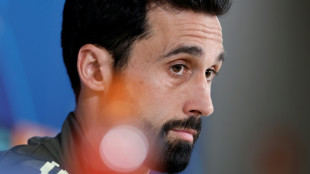 UEFA can make fight against racism more than a slogan: Real Madrid's Arbeloa
UEFA can make fight against racism more than a slogan: Real Madrid's Arbeloa
-
Bali flooding prompts tourist evacuation: official
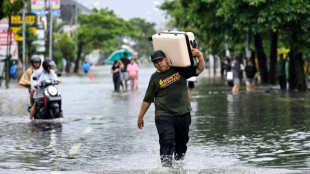
-
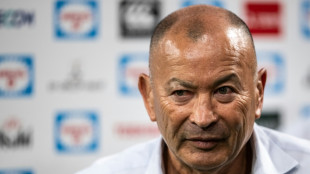 Jones says Borthwick's 'title-decider' comments behind England collapse
Jones says Borthwick's 'title-decider' comments behind England collapse
-
UK fines Reddit nearly $20 mn over children's data failures

-
 PSG star Hakimi faces trial for alleged rape
PSG star Hakimi faces trial for alleged rape
-
Netflix, Prime and Disney+ face UK broadcasting regulation

-
 Greece set new tourism record in 2025
Greece set new tourism record in 2025
-
Zelensky says Ukraine unbroken after 4 years, but Russia vows to fight on

-
 Zelenksy says Ukraine unbroken after 4 years, but Russia vows to fight on
Zelenksy says Ukraine unbroken after 4 years, but Russia vows to fight on
-
Snoop Dogg 'can't wait' for first Swansea visit

-
 Stocks fluctuate as traders assess AI fallout, tariffs
Stocks fluctuate as traders assess AI fallout, tariffs
-
Post-it maker 3M faces Belgian trial over 'forever' chemicals

-
 UK comedian Russell Brand pleads not guilty to new rape, assault charges
UK comedian Russell Brand pleads not guilty to new rape, assault charges
-
Duterte drew up 'death lists', boasted about murders: ICC prosecutor

-
 UK govt urged to release documents linked to ex-prince Andrew
UK govt urged to release documents linked to ex-prince Andrew
-
Rights group slams treatment of viral Japanese monkey

-
 Inside the bunker where Zelensky led response to Russian invasion
Inside the bunker where Zelensky led response to Russian invasion
-
France demands explanation from US envoy over 'surprise' no-show
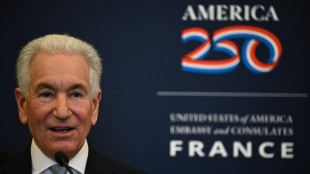
-
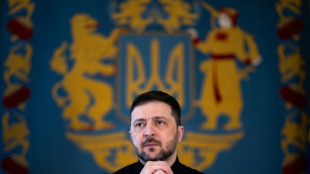 Putin failed to achieve goals in Ukraine, Zelensky says on war anniversary
Putin failed to achieve goals in Ukraine, Zelensky says on war anniversary
-
China tightens Japanese trade restrictions as spat worsens

-
 Ukraine war exhibition opens at Berlin Nazi bunker museum
Ukraine war exhibition opens at Berlin Nazi bunker museum
-
Jihadist threat puts eastern Senegal on edge

-
 Kim Yo Jong: the powerful sister behind North Korea's supreme leader
Kim Yo Jong: the powerful sister behind North Korea's supreme leader
-
North Korea ruling party promotes Kim Jong Un's younger sister

-
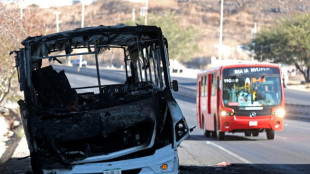 Mexico's Jalisco cautiously tries returning to normal after cartel violence
Mexico's Jalisco cautiously tries returning to normal after cartel violence
-
Mexico's violence-hit Guadalajara to host World Cup games

-
 Mourinho's Bernabeu homecoming upended by suspension, racism row
Mourinho's Bernabeu homecoming upended by suspension, racism row
-
China targets Japanese companies over military ties

-
 Griezmann in talks to join MLS side Orlando City: source
Griezmann in talks to join MLS side Orlando City: source
-
France to revoke US envoy's govt access after summons no-show
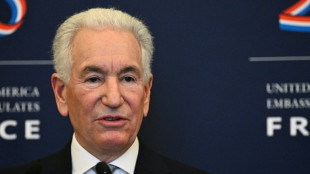
-
 Spurs overpower Pistons in clash of NBA's form teams
Spurs overpower Pistons in clash of NBA's form teams
-
Inoue to fight Nakatani in Tokyo in May: reports

-
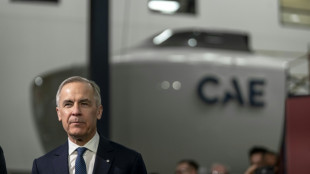 Canada PM to push trade, rebuild fractured ties in India trip
Canada PM to push trade, rebuild fractured ties in India trip
-
Asian markets mixed as traders weigh AI and tariffs outlook

-
 Votes may 'melt like snow': Reform, Greens eye Labour UK bastion
Votes may 'melt like snow': Reform, Greens eye Labour UK bastion
-
Venezuela says exiles welcome to return following mass amnesty


Phone bans sweep US schools despite skepticism
At a red-brick school in Virginia, Hayden Jones is one of 1,000 students banned from using their phones as part of a trial hoping to boost learning.
But the 12-year-old's verdict on the restrictions -- a shrug of his shoulders -- reflects the skepticism shared by some students and parents.
The phone ban at Twain Middle School is among a wave of measures implemented around the United States, and is part of a global movement replicated in Brazil, France and beyond.
Supporters believe restrictions will guard pupils from the apparent harms of smartphone use while at school, but opponents say the measures fail to prepare teenagers for the digital world they will inevitably enter.
Since September, Jones must now place his Android phone in a magnetic pouch each morning, which is locked until the end of the school day as part of a pilot scheme this academic year.
Jones, speaking to AFP in a corridor lined with classrooms, said he hopes the ban will be gone by the time he starts eighth grade in September.
"I like being able to go to my locker and call my parents. That's a big concern for me," he said, adding that some pupils have found ways to still use their devices -- including by bringing a "dummy phone" to put in the pouch.
School principal Matthew Mough admitted that enforcing the ban -- and winning over students -- has proved challenging, though he said most follow the rules.
"The majority of kids who have phones don't love it," he said. "However, if you dig deeper with them in the conversation, they will acknowledge that it's helped them remain focused."
Mough said the phone ban has reduced classroom distractions, cyberbullying and instances of students meeting up to skip lessons.
- 'Heads in the sand' -
Cell phone bans come alongside research suggesting that social media use increases the likelihood of mental illnesses like anxiety and depression in young people.
Advocacy groups regularly cite these studies as justification for school phone bans, which have seen rare political consensus in a nation deeply divided on virtually every other political issue.
Around 76 percent of US public schools -- from liberal California to conservative Florida -- had some sort of ban on non-academic phone use, according to the latest Department of Education figures, with several state-wide measures also in place or under consideration.
They are largely backed by teachers, with the National Education Association saying 90 percent of its members support policies banning phones during lessons.
"The biggest problem is that kids aren't in a place developmentally where they're able to handle the type of technology that we're talking about," said Sabine Polak, co-founder of the Phone-Free Schools Movement, which backs full-scale phone bans.
Critics of the restrictions argue that educating children about the potential risks of social media and smartphone use is better than prohibition.
"The answer is not to just ban and put our heads in the sand," said Keri Rodrigues, president of the National Parents Union, which represents over 1,000 parent organizations in the United States.
She compared efforts to ban phones to "abstinence education," noting that failing to properly teach children about complicated issues such as sex has failed in the past.
"It's not effective, and frankly, it's dumb," Rodrigues told AFP. "What we need to do is equip our kids with the information, with the skills and the strategies they're going to need to navigate a digital future."
At the school in Virginia, Jones said the phone ban has not changed how he interacts with his device, still using it for games, social media and watching YouTube videos.
His one complaint about his phone? "Nothing really, honestly, I mean besides the fact that it weighs a ton in my pocket."
S.F.Warren--AMWN
